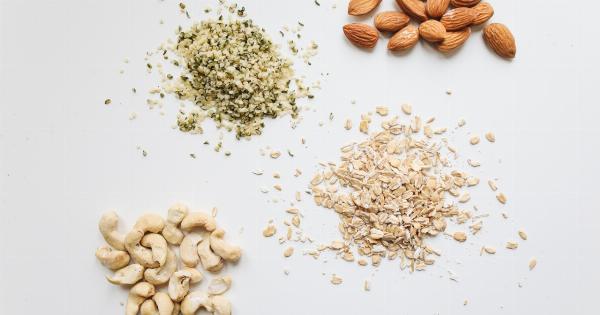Apricots are the fruit of the apricot tree (Prunus armeniaca), which is native to China but is now widely cultivated in many regions around the world.
This small, juicy fruit is packed with nutrients and is enjoyed by many people due to its sweet, tangy taste. In this article, we will explore the many benefits of apricots and why you should consider incorporating them into your diet.
Nutritional Value of Apricots
Apricots are an excellent source of many essential vitamins and minerals, including:.
- Vitamin A
- Vitamin C
- Vitamin E
- Potassium
- Dietary fiber
- Iron
- Calcium
One medium-sized apricot (35 grams) provides roughly:.
- 17 calories
- 0.4 grams of protein
- 0.1 grams of fat
- 3.8 grams of carbohydrates
- 0.7 grams of fiber
- 324 IU of vitamin A
- 600 mcg of beta-carotene
- 0.5 mg of vitamin E
- 119 mg of potassium
- 5.6 mg of calcium
- 0.3 mg of iron
Health Benefits of Apricots
1. Improves Digestive Health
The dietary fiber content in apricots makes it an excellent food for promoting good digestive health. Fiber helps to keep the digestive system functioning smoothly by regulating bowel movements and preventing constipation.
A diet high in fiber has also been linked to a lower risk of developing colon cancer.
2. May Help Prevent Cancer
The high levels of antioxidants found in apricots may help to prevent cancer by neutralizing harmful free radicals in the body.
Studies have shown that a diet rich in antioxidants may help to reduce the risk of certain types of cancer, including breast, colon, and lung cancer.
3. Boosts Eye Health
Apricots are an excellent source of vitamin A, which is essential for good eye health. Vitamin A helps to prevent age-related macular degeneration (AMD), cataracts, and other eye-related problems.
4. Supports Heart Health
The potassium content in apricots helps to regulate blood pressure and maintain a healthy heart. Potassium is also essential for the proper functioning of muscles and nerves in the body.
5. May Improve Skin Health
The high levels of vitamin A and C found in apricots may help to improve skin health by promoting collagen production and reducing the appearance of fine lines and wrinkles.
Apricots also contain antioxidants that help to protect the skin from damage caused by UV radiation and other environmental factors.
6. Boosts Immune System
The vitamin C content in apricots helps to boost the immune system by stimulating the production of white blood cells. White blood cells help to fight off infections and diseases, keeping the body healthy and functioning properly.
7. May Aid in Weight Loss
Apricots are a low-calorie fruit that is high in dietary fiber, which makes it an excellent food for weight loss. Fiber helps to keep you feeling full and satisfied, reducing your overall calorie intake and promoting weight loss.
How to Incorporate Apricots into Your Diet
Apricots can be enjoyed in many ways, including:.
- As a snack
- Sliced and added to salads
- Blended into smoothies
- Baked into desserts
- Dried and added to trail mix
- As a topping for oatmeal or yogurt
When selecting apricots, choose fruit that is plump, firm, and brightly colored. Ripe apricots should give slightly when pressed gently with your thumb. Store apricots in the refrigerator and consume them within a few days for optimal freshness.
Conclusion
Apricots are a delicious and nutritious fruit that is well worth adding to your diet.
With their high levels of vitamins, minerals, and antioxidants, apricots offer many health benefits, including improving digestive health, supporting heart health, and boosting the immune system. Try incorporating fresh or dried apricots into your diet to enjoy their sweet and tangy flavor while reaping the many benefits they have to offer.





























